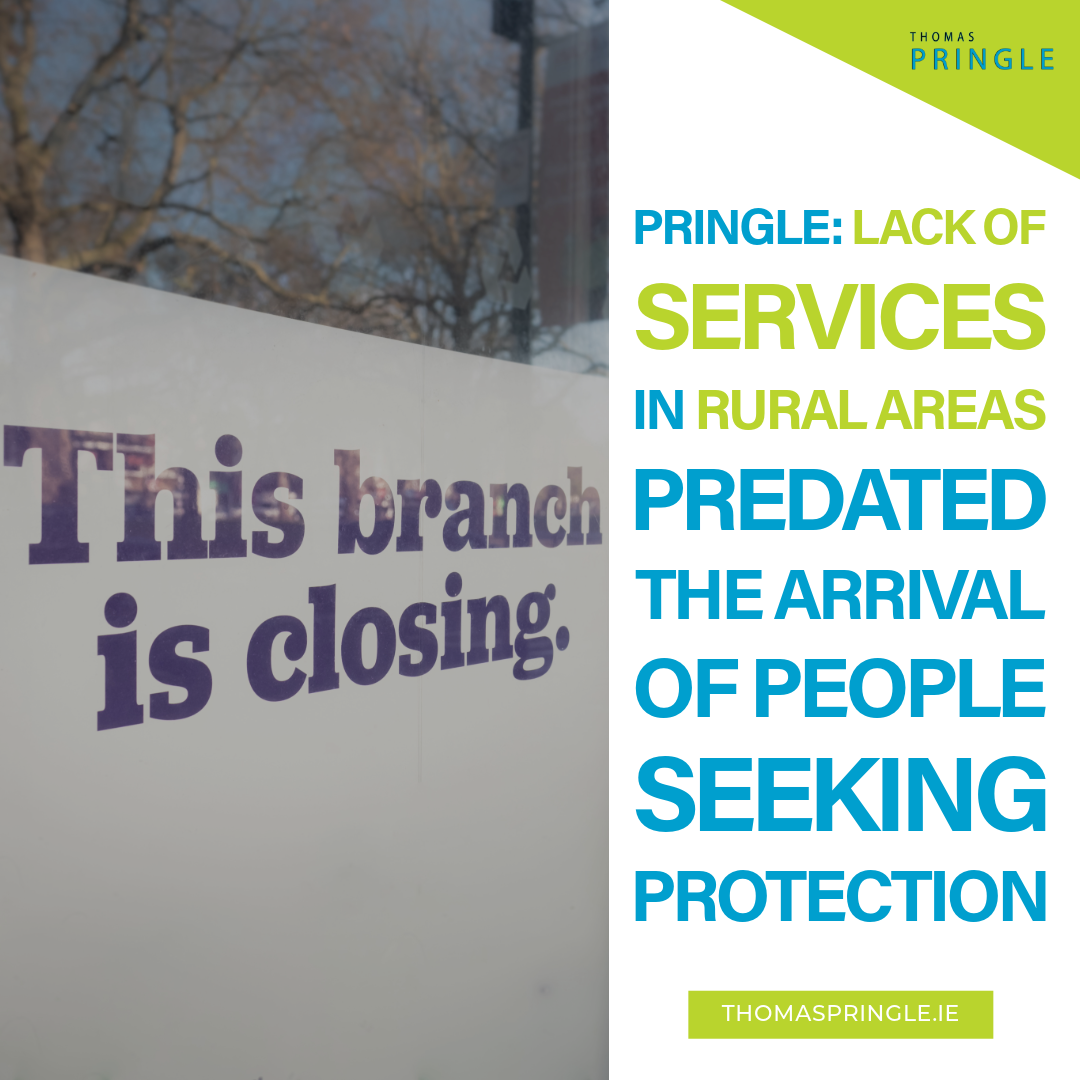- Pringle: We need a policy that recognises the importance of inshore fishing
- Pringle: Disabled people and carers face crisis of State neglect
- Pringle: Failed FF/FG housing policies forcing people to put their lives on hold
- Pringle welcomes Donegal council motion on Occupied Territories Bill: ‘We cannot stand by in the face of genocide’
Pringle: Lack of services in rural areas predated the arrival of people seeking protection
- Updated: 31st January 2024

Independent TD for Donegal, Thomas Pringle, said lack of services, particularly in rural areas, was a serious issue long before people seeking protection came to Ireland, as he credited the contributions that immigrants have made to Irish society.
Addressing the Dáil on Tuesday, Deputy Pringle said: “I think in discussing this issue and the issue of services, we often forget the people. People who have felt so unsafe that they have had to leave their own homes, and oftentimes their own family, friends, work and communities in search of protection.”
The deputy said: “These people and their experiences often get lost in numbers and disagreements over services. There is no doubt that the issue of lack of services, particularly in rural communities, is serious and needs to be addressed urgently, but sadly this has been an issue for many years now, long before people seeking protection came to these communities, and should they leave tomorrow this issue would still remain.
“All of us from rural Ireland know this well. We have been forgotten by the government for years now and nothing has changed, except now we are being encouraged to punch down rather than up by some with malicious and harmful intent, who are attempting to exploit the public’s real concerns and using them to stoke hatred.
“They are doing this under the guise of ‘Irishness’ and ‘nationalism’, yet the ideas they are spreading could not be more anti-Irish,” he said.
Deputy Pringle said: “Immigrants into our country are just looking for the opportunity to have a better quality of life. We have never been denied this anywhere we went, so why should we deny anyone else this opportunity?”
The deputy was speaking during Statements on the Co-ordination of Services for Those Seeking Protection in Ireland.
Deputy Pringle said: “And the opportunity isn’t one-sided. Many of our services are operating at crisis mode, particularly our healthcare sector and housing sector. As well as this we are facing many skill shortages, with employers unable to fill many key positions. We are in need of more people to fill this gap and revitalise many of our rural areas. This is our opportunity to do so and all it requires is a bit of forward thinking by government.
“Data from the Central Statistics Office issued at the end of last year shows that immigrants have played a vital role in our recent economic success, filling just over half of the 100,000 additional jobs created over the past year,” he said.
The deputy said: “We need to realise that division and tensions within our communities are not the way forward and will not address the lack of vital services. We need to realise that those sparking those divisions and spreading misinformation do not care about communities they seek to divide. Many are not even from those communities themselves.
“The sad reality is that the State plays a role in this division, subtly at times, and more obviously at other times.
“Culture wars stop communities organising around the things that actually matter to them, like housing, employment and even the climate crisis, a crisis that actually forces much of the migration in the first place and a crisis that will only continue to raise immigration numbers. It is predicted there could be 1.2 billion climate refugees by 2050, with people being forced to flee due to desertification, rising sea levels or a lack of clean drinking water.
“As long as we are pointing the finger at vulnerable people, we are not organising around the things that matter and we are not pointing the finger towards those who are actually at fault.
“We have a government now that is operating on huge surpluses. If there is not expenditure in communities, it is not because of asylum seekers. It is because of lack of government action,” he said.



